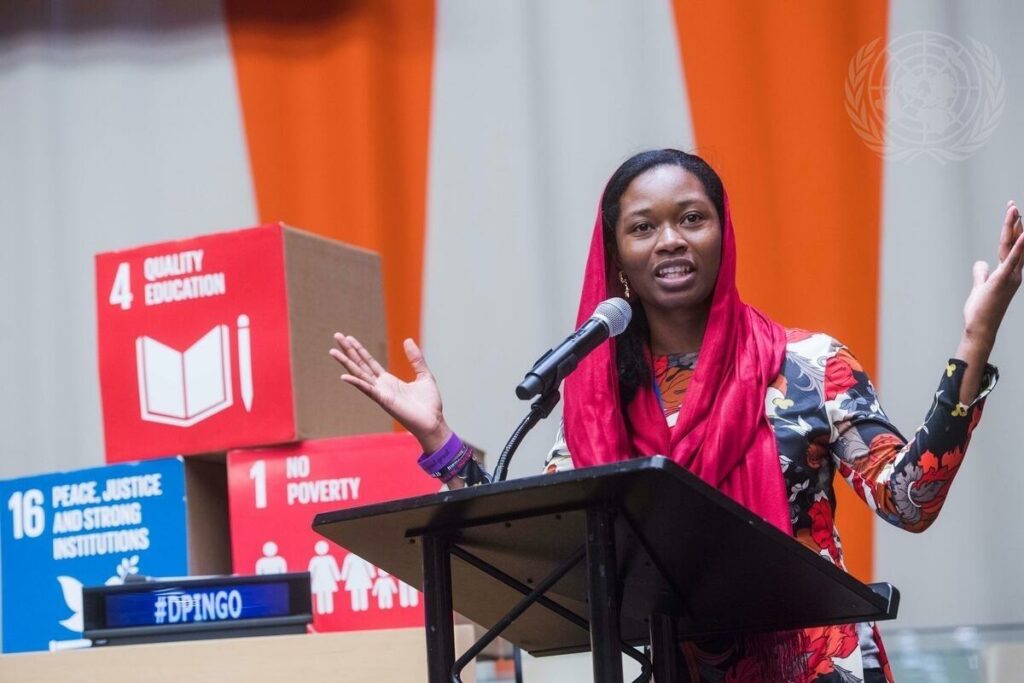In September 2023, UN CC:Learn brought partners together to discuss “How Public Engagement Approaches Can Deliver against the New ACE Work Programme” as part of the Dialogues Space on Learning for Citizens and Professionals.
The two-hour discussion aimed to reflect on the commitments under the Action for Climate Empowerment (ACE) agenda, focusing in particular on public engagement. It provided opportunities to share approaches and good practices from different organizations and discussed challenges and opportunities for promoting public engagement through learning initiatives.
The event was attended by Climate Outreach, Climate Reality Project Indonesia, the Government of Ghana, Greenish, the Government of Malawi, MIET Africa, the NDC Partnership, the Swiss Agency for Development and Cooperation, Little Hands Uganda, We Effect and UNITAR/UN CC:Learn.
Opening Remarks, Introduction to the New Chair and Overview of UN CC:Learn’s Support on ACE
The event kicked off with opening remarks by Ms. Mihoko Kumamoto, Director of the Division for Prosperity at UNITAR and Director of the UNITAR Hiroshima Office, who stressed that public engagement should be inclusive and consider different groups and communities to be effective. Moreover, she highlighted key points that can help enhance public engagement, including:
- High quality of data and knowledge and evidence based information.
- Effective entry points into policy formulation and implementation.
- Empowering individuals as effective communicators and effective leaders.
Following Ms. Kumamoto’s presentation, the new Chair of the Dialogue Space on Learning for Citizens and Professional, Dr. Amiera Sawas, Chief Research and Engagement Officer at the UK-based Climate Outreach, was introduced to participants. In her remarks, she noted that any intervention aiming to engage the public should be carefully thought through since there’s “no one-size fits all” approach.
After Dr. Sawas’ introduction, Ms. Cristina Rekakavas, coordinator of the UN CC:Learn Partnership, took over to give an overview of UN CC:Learn’s support to countries to take a strategic approach to climate change education, training and public awareness for their decision-makers, professionals and citizens to be able to take effective action and make informed decisions on climate change. Currently, the Partnership is engaging with over 30 countries on several fronts, from the integration of climate change into the formal education system, teacher trainings, training of professionals (such as government officials and journalists) to the engagement of young people and broad communication.
What Does ‘Public Engagement’ Mean for Climate Action?
The second part of the event had Dr. Sawas present the different public engagement types under ACE. She highlighted the following practical examples:
- Public participation in decision-making e.g., citizen assemblies, public consultation on proposed climate policies, policy decision for a, etc.
Education and training e.g., from a UNESCO study, out of nearly 50 countries, nearly half make no reference to climate change; training is also needed within sectors and professional bodies on climate change. She also showcased several research studies on climate communication and public engagement, such as Climate Visuals.
Experience-Sharing and Discussion on Public Engagement for Climate Action
The third part featured presentations by UN CC:Learn, Greenish and We Effect.
Ms. Cristina Rekakavas, from UN CC:Learn, walked participants through the several UN CC:Learn resources that are building the skills of citizens and professionals to support them in taking climate action and making climate-friendly decisions, such as the Knowledge-Sharing Platform, the E-Learning Platform, the Affiliation Programme, the Alumni Network, the Impact Surveys and the Climate Classroom.
Then Mr. Mohamed Kamal, Director at Greenish, gave an introduction about his organization, highlighting their work with community engagement, advocacy, and social inclusion, highlighting the collaboration with Climate Outreach.
Finally, Ms. Sian Morga and Mr. Archagel Munthal, Southern Africa Regional Programmes Director and Regional Programme Coordinator at We Effect, spoke about a participatory approach to public and civic engagement, giving examples of women’s economic empowerment in the cotton value chain in Southern Africa.
These interventions were followed by a plenary discussion which allowed further experience-sharing, including the experiences of Ghana and MIET Africa in integrating climate change into the school curricula, and Little Hands Uganda’s Green Festival, which attracted over 20,000 individuals, including 12,000 children, in an effort to empower a generation of environmentally conscious citizens.
Conclusion
The key takeaways from this Dialogue Space focused on the importance of:
- Reflecting on and taking into account the social values that are part of who we are as human beings.
- Building trust, relationships, and dialogue to understand what the different communities and groups we are targeting and supporting really think and need.
- Understanding the gender related experiences and social context and norms and the linkages that climate change have with these and other issues.
Dialogue Spaces
The three UN CC:Learn Dialogue Spaces – Learning for Countries, Learning through Youth and Learning for Citizens and Professionals – provide an opportunity for interested partners and stakeholders to regularly exchange, hold in-depth discussions around key themes and identify synergies and specific opportunities for collaboration.

